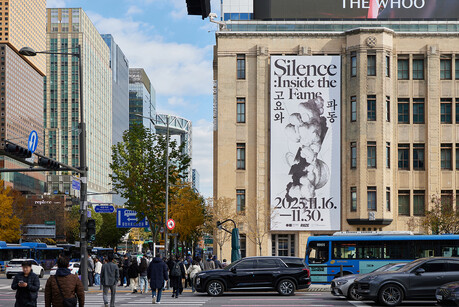Bavarian Minister President Markus Söder's announcement to add busts of philosopher Hannah Arendt and former CSU leader Franz Josef Strauss to the Walhalla Hall of Fame has sparked intense political debate, with critics arguing that the memorial should not serve as a partisan tribute. The decision, announced during the CSU parliamentary group's retreat at Kloster Banz monastery in Upper Franconia on Tuesday, would fill the last two available spaces in the prestigious memorial near Donaustauf in the Regensburg district.
Currently, 132 busts and 64 memorial plaques honor significant German-speaking personalities at the Walhalla. However, funding for the proposed additions remains unclear. According to the Bavarian Ministry of Arts website, "The costs associated with the creation and installation of busts are traditionally not borne by the Free State of Bavaria, but by individuals and organizations interested in the installation." When asked about financial arrangements for the Arendt and Strauss busts, the ministry simply stated that "cost coverage will be clarified."
Arts Minister Markus Blume defended the selections, telling reporters that "both personalities symbolically represent what makes Bavaria special: powerful action, brilliant thinking, courageous behavior. They complete our Bavarian Olympus of remembrance." Blume described both figures as "formative and shining role models," calling Strauss "the father of modern Bavaria" and "practitioner of freedom," noting he would be only the third politician alongside Otto von Bismarck and Konrad Adenauer to be admitted to the Walhalla. He praised Arendt as a "pioneer against totalitarianism" and "philosopher of freedom," calling her "one of the greatest political theorists of the 20th century."
While the ministry provided detailed justification for Arendt's inclusion, it merely referred to Söder's statements regarding Strauss. On social media platform X, the Minister President had characterized Strauss as the "founding father of today's modern Bavaria" and Arendt as a "fighter for freedom, equality, and democracy." The Jewish-German-American philosopher and the longtime CSU leader and former Bavarian Minister President represent vastly different backgrounds and ideologies, yet both are being positioned as emblematic of Bavarian values.
Opposition criticism has been particularly sharp regarding the Strauss selection. Julian Preidl, cultural expert for the Free Voters in the state parliament, had previously criticized the decision, arguing that the Walhalla "is not a CSU regular's table and not a fan club for minister presidents." Green Party parliamentary group leader Katharina Schulze echoed this sentiment, telling reporters that "the Walhalla is not a CSU memorial for Markus Söder."
The city of Fürth has proposed an alternative candidate, arguing that Ludwig Erhard, Germany's second Chancellor and the city's most famous son, would be more deserving than Strauss. Mayor Thomas Jung told Bavarian Broadcasting that a decision for Strauss over Erhard would be a "great embarrassment" for the state government and the entire Free State of Bavaria. Jung pointed out that Erhard successfully became Chancellor, an achievement that Strauss had aspired to but never reached.
Public reaction has been divided, as evidenced by reader comments on the news website. One supporter wrote, "FJS has served Bavaria well and should get a place in the Hall of Fame," while a critic countered, "FJS in the Walhalla, seriously? He was neither a monarch nor a scholar. He was just a Minister President. That Adenauer is there as the first Chancellor I can still understand. This personality cult around FJS is getting annoying. We already have an airport named after him." The debate reflects broader questions about how historical figures should be commemorated and whether political achievements alone merit inclusion in Bavaria's most prestigious memorial.





























